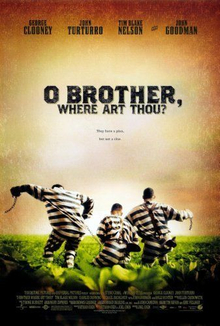A blog formerly known as Bookishness / By Charles Matthews
"Dazzled by so many and such marvelous inventions, the people of Macondo ... became indignant over the living images that the prosperous merchant Bruno Crespi projected in the theater with the lion-head ticket windows, for a character who had died and was buried in one film and for whose misfortune tears had been shed would reappear alive and transformed into an Arab in the next one. The audience, who had paid two cents apiece to share the difficulties of the actors, would not tolerate that outlandish fraud and they broke up the seats. The mayor, at the urging of Bruno Crespi, explained in a proclamation that the cinema was a machine of illusions that did not merit the emotional outbursts of the audience. With that discouraging explanation many ... decided not to return to the movies, considering that they already had too many troubles of their own to weep over the acted-out misfortunes of imaginary beings."--Gabriel García Márquez, One Hundred Years of Solitude
Search This Blog
Wednesday, November 16, 2016
O Brother, Where Art Thou? (Joel Coen and Ethan Coen, 2000)
On the scale for goofy Coen brothers films, O Brother, Where Art Thou? falls somewhere between Raising Arizona (1987) and The Big Lebowski (1998) from goofiest to least goofy. It is, I think, more over-the-top than is absolutely necessary, especially in the idiot hick accents adopted by John Turturro and Tim Blake Nelson in their roles. Or maybe they just seem that way because of the differently over-the-top performance of George Clooney as Ulysses Everett McGill, a man who thinks he talks more intelligently than he does. Still, I like Clooney in this mode, more than I do when he's playing a serious character, and it's to the Coens' credit that they cast him in the role: His performance gives an odd kind of off-balance stability to that of the other two. The chief glory of the movie, however, is its music, chosen by T Bone Burnett, superbly evoking a time and place. As for that time and place, Depression-era Mississippi, the movie pretty much ignores reality in favor of goofing around. It was the era of Bilbo and Vardaman, politicians of deeply cynical evil, and the rival candidates played by Charles Durning and Wayne Duvall don't even approach their horror, even when lampooning it. I laughed when the Ku Klux Klan performed what looked like a marching band half-time routine with a chant that evokes the parading monkey guards in The Wizard of Oz (Victor Fleming, 1939), but maybe it's the outcome of the recent presidential election that made me feel a little nauseated at even the notion of a comical Klan. A kind of irresponsibility mars the Coens' approach to the material, brilliantly funny as it often is. That said, the pacing of the movie is lively, and it's filled with ever-watchable performers like Durning, Holly Hunter, and John Goodman at their best. And there's always that music: If I'm inclined to forgive the Coens for their irresponsibility, it's because they introduced a lot of people who went out and bought the soundtrack album to some great music.
